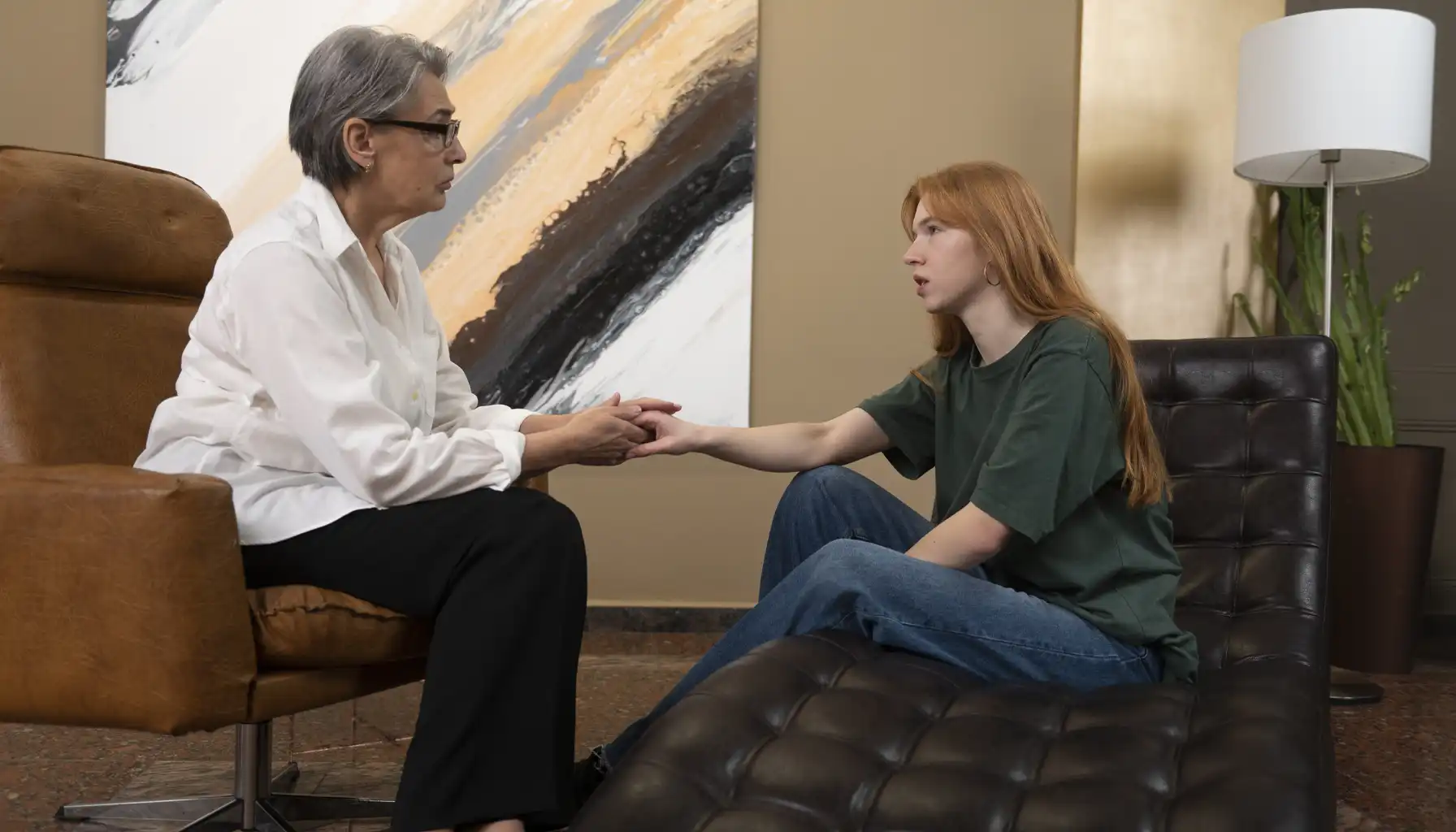Love On the Extremes: What Is Philophobia, the Fear of Love?

Contents:
Karl A. Menninger once said: “Love cures people – both the ones who give it and the ones who receive it.”
However, some people might refuse it, not because they cannot love or be loved, but because love itself feels overwhelming, unsafe, or even terrifying. The loss of control, which usually occurs when emotions deepen in a relationship, can become the source of intense fear and lead to solitude rather than companionship. This is what the philophobia meaning is about.
Indeed, love is the sweetest of human emotions, but when a person genuinely suffers from the pain of vulnerability, it may feel more like a threat than a gift. Love may heal, love may break – the latter, though, often leaves scars that make people fearful of ever trying again.
Nonetheless, there is a way to confront it and live a fulfilling life without fears, understatements, and lost opportunities. But how is it possible, and why is brain training essential for replacing fear with resilience and openness to love?

What Does Philophobia Mean?
Let us start with the most basic information about the philophobia definition. The word itself comes from the Greek words phílos (“love”) and phóbos (“fear”), and it literally translates as the fear of love. As such, it is considered one of the specific phobias, i.e., a strong, often overwhelming fear (of falling in love or forming a romantic bond in this case).
As a rule, most conditions should be presented in the official lists of cognitive disorders, yet unlike its closest counterparts (e.g., philematophobia), it is not listed in the Diagnostic and Statistical Manual of Mental Disorders (DSM-5), even though its effects can feel very real to those who experience it. So, let us take a look at the philophobia symptoms so as to understand how it could be managed and how long it usually takes to disappear.
Types or Variations of Philophobia

Philophobia is not consistent in its manifestations. Although one may not be really aware of the main variations of most fears, this very deviation is quite usual (yet specific). The types may be categorized according to personal history and emotional triggers, attributed to the person under study. So, what are they?
Situational Philophobia: This form often develops after a painful breakup, betrayal, or loss and is usually associated with the fear of being hurt again, tied to the idea of falling in love.
Chronic Philophobia: In some cases, the fear persists long-term, regardless of circumstances. People with chronic philophobia may avoid romantic involvement altogether, even if they have not experienced obvious trauma yet.
Fear of Romantic Love: This is the most common variation, with the idea of falling in love or forming a romantic bond triggering anxiety and avoidance.
Fear of Emotional Vulnerability: Some people may not fear love itself but the openness and loss of control that comes with intimacy. For them, love is threatening, for it requires trust and exposure of one’s inner world. We usually see it in romcoms and dramas, but let us not romanticize this in turn.
Cultural or Religious Philophobia: In certain contexts, love and relationships may be discouraged or even prohibited. Here, the fear comes from internalized beliefs or social conditioning rather than personal experiences.
Philophobia Causes: Where Does It Come From?

A single traumatic event can become the source of the phobia, though it usually involves more complex layers of emotional, psychological, and sometimes social factors. In fact, the fear is based on how a person may process emotions, interpret vulnerability, or respond to uncertainty in relationships. What is more, should a person be naturally prone to genetic anxiety, this fear can become amplified (without any other reason to appeal to).
Psychologists often link philophobia to attachment styles developed in early childhood. Those people who grew up with inconsistent or neglectful caregivers (e.g., narcissistic parents) may further struggle with trusting others and equate closeness with instability. Over time, the problem does not disappear – it only gets stronger day by day.
Additionally, the modern social context may also affect the way we feel and love. Some people worry that love blurs all the frames, creates dependency, or distracts one from personal goals. From this perspective, the rejection of love is not an emotional but a conscious decision influenced by beliefs about freedom, identity, or responsibility as a whole.
Psychological Theories Behind Philophobia
Since it is vital to delve into the core of philophobia, it might be reasonable to explore major psychological frameworks that explain why some people develop an intense fear of love and intimacy.
Psychological Theory | Core Idea | Potential Causes | Typical Manifestations in Philophobia |
Attachment Theory | Early childhood experiences (e.g., witnessing your parents interact) shape relationship patterns. | Inconsistent, neglectful, or overly controlling caregivers. | Difficulty trusting partners, avoidance of intimacy, fear of closeness. |
Cognitive-Behavioral Theory | Fear is maintained by distorted thinking patterns. | Overestimation of risks, catastrophizing rejection, rigid beliefs about love. | Anxiety in romantic situations, avoidance of relationships, obsessive rumination. |
Learned Behavior/Conditioning | Fear develops through repeated negative experiences. | Past heartbreak, witnessing failed relationships, cultural or social cues. | Associating love with pain, strong avoidance of romantic involvement, emotional withdrawal. |
Existential/Philosophical View | Fear arises from conflict between autonomy and intimacy. | Desire for independence, fear of losing control, perfectionism, fear of dependency. | Avoidance of commitment, reluctance to engage emotionally, prioritizing personal goals over relationships. |
Symptoms of Philophobia to Know
Finally, here comes a question: what are the signs of philophobia? Since they can manifest at any age and in any circumstances, the variety of symptoms may be impressive (and even miserable).
Emotional Symptoms
Intense anxiety when one thinks about falling in love
Feelings of guilt or frustration about emotions toward others
Persistent fear of vulnerability or emotional intimacy
Behavioral Symptoms
Avoidance of dating or romantic relationships
Reluctance to express feelings or commit emotionally
Self-isolation to prevent potential emotional pain
Physical Symptoms
Rapid heartbeat, sweating, or nausea when faced with romantic situations
Muscle tension or restlessness in emotionally charged moments
Sleep disturbances related to anxiety about love
Psychological Symptoms
Overthinking or obsessive rumination about relationships
Fear of making mistakes or being rejected
Difficulty trusting others or forming deep connections
How to Cure Philophobia? A Few Methods Explained
Cognitive Behavioral Therapy (CBT)

Technique: Restructuring negative thought patterns about love and relationships.
Benefits: Reduces anxiety, improves coping skills, promotes healthier perspectives on intimacy.
How It Works: Cognitive behavioral therapy, when provided by healthcare specialists, may help one identify distorted beliefs that trigger fear, such as overestimating the likelihood of rejection or heartbreak. Exposure to safe social situations through guided exercises, as well as gradual challenges, promotes the replacement of fear-based thoughts with more balanced, rational ones.
Mindfulness and Relaxation Techniques
Technique: Mindfulness meditation, deep breathing, body-awareness exercises.
Benefits: Lowers stress, enhances emotional regulation, increases self-awareness.
How It Works: Mindfulness itself trains the mind to stay present, for it may reduce rumination about past relationships or anxieties about the future. What one should do is observe thoughts and emotions without judgment and then approach love with dignity and grace.
Cognitive Training

Technique: Engaging in brain-training games that target memory, attention, reasoning, math fluency, and musical perception.
Benefits: Improves mental flexibility, focus, and problem-solving skills, which can indirectly reduce fear responses in emotional situations.
How It Works: Cognitive training is a popular way to help your brain work 24/7, and Mind Elevate is no exception. This app offers 35+ interactive challenges designed to strengthen cognitive functions, for they focus on enhancing memory retention, attention, and logical reasoning – mental control at its best!
Support Groups and Therapy

echnique: Participating in group therapy or guided discussions with others who experience similar fears.
Benefits: Provides emotional support, reduces isolation, presents practical coping strategies.
How It Works: Finally, we have come to the most therapeutic method that helps one cope with their inner demons when supported by other people with the same problem. Sharing experiences with them helps normalize the fear of love, provide validation, and allow participants to learn from one another – love should be shared, not avoided.
And according to Itay Snir, if philophobia is the fear of hateless love, then it is nothing other than criticophilia – this is the truth.





